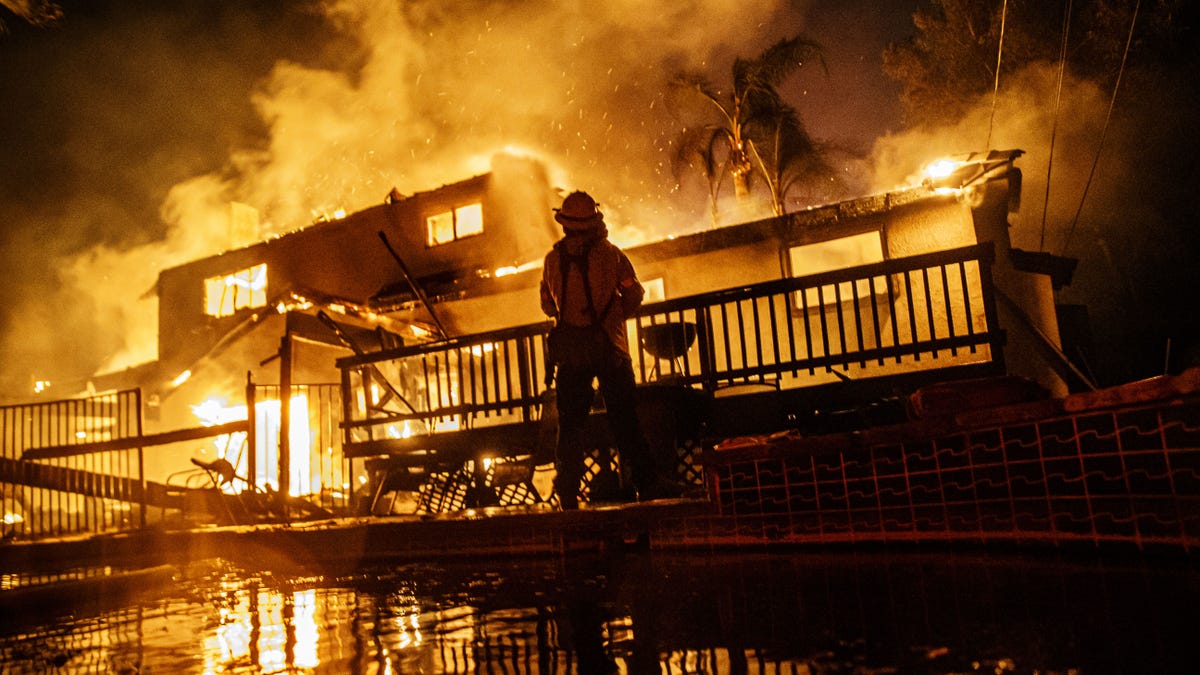Fox News Flash top headlines for Nov. 1
Fox News Flash top headlines for Nov. 1 are here. Check out what's clicking on Foxnews.com
California's raging wildfires have consumed tens of thousands of acres, displaced thousands and knocked out power -- but could the planet be entering a new age of fire?
In a piece for The Conversation, fire historian and emeritus professor at Arizona State University Stephen Pyne posits that Earth is entering a Pyrocene, or age of fire, that's comparable to the ice ages of the Pleistocene.
"Modern societies are burning lithic landscapes - once-living biomass now fossilized into coal, gas and oil - which is aggravating the burning of living landscapes," writes Pyne, adding that climate change is not the only issue.

A car burns in a garage as a home goes up in flames during the Hillside fire in the North Park neighborhood of San Bernardino, Calif., on Thursday. ((JOSH EDELSON/AFP via Getty Images))
NEW CLASS OF BLACK HOLES MAY EXIST, SCIENTISTS SAY
"Climate change acts as a performance enhancer, and understandably, it claims most of the attention because it's global and its reach extends beyond flames to oceans, mass extinctions and other knock-on effects," he explains. "But climate change is not enough by itself to account for the plague of megafires."
However, as he notes, a wide range of factors -- including land use, road hazards and postburn environments -- can influence how fires start and how they burn.
When humans began to burn fossilized rather than living biomass, it set in motion a "pyric transition," he writes. The transition sparked a wave of monster fires in America that followed the country's expansion across the continent.
According to Pyne, the firepower of humanity underwrites the Anthropocene, an outcome of human meddling through our species' domination over fire. "Society reorganized itself around fossil fuels, adapting to the combustion of lithic landscapes and ignoring the fire latent in living ones," he writes.
STUNNING NASA IMAGE SHOWS GREAT NEBULA IN ORION

Firefighters work to control the flames as the embers blown by the wind threaten more homes in the North Park neighborhood at the Hillside Fire in San Bernardino on Thursday. (Photo by Marcus Yam/Los Angeles Times via Getty Images)
"But industrial fire, unlike landscape fires, is solely a product of human finagling, and so has stood outside the bounds of ecological science," the professor writes.
"In humanity — the keystone species for fire on Earth — those two arenas of earthly burning, like smoke from separate fires drawn into a single convective column, are merging. Their give and take is reshaping the planet," he concludes in his essay.





















